Search Results
Showing results 201 to 220 of 348
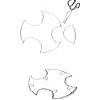
Zoom-A-Rang
Source Institutions
In this activity, learners design and build a Zoom-a-rang using everyday materials. Experiment with different materials and Zoom-a-rang designs to see how they fly.
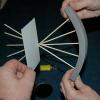
It's all Done with Mirrors
Source Institutions
This fun and simple hands-on astronomy activity illustrates the path of light as it reflects off of mirrors and how this is used in telescopes.

Invisible Sunblock
Source Institutions
This is a hands-on activity exploring how nanoscale particles are used in mineral sunblocks to increase their transparency.

A Crayon Rock Cycle- Metamorphic
Source Institutions
This is part 2 of the three-part "Crayon Rock Cycle" activity and must be done after part 1: Sedimentary Rocks. In this activity, learners explore how metamorphic rocks form.
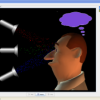
Color Vision
Source Institutions
In this online activity, learners make a whole rainbow by mixing red, green, and blue light. They can change the wavelength of a monochromatic beam or they can filter white light.
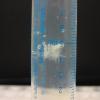
Home Molecular Genetics
Source Institutions
In this activity, learners extract DNA from their own cheek cells, then create a rudimentary DNA profile similar to those seen on crime scene dramas.

Decibel Cannon
Source Institutions
In this activity, learners will construct an air cannon as a model for the human ear.
Soaring Satellites
Source Institutions
Using a vertical wind tube and using simple materials, individuals and groups attempt to design a "satellite" that floats for at least 5 seconds.
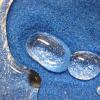
Magic Sand: Nanosurfaces
Source Institutions
This is an activity/demo in which learners are exposed to the difference bewteen hydrophobic surfaces (water repelling) and hydrophilic surfaces (water loving).

Freezing Lakes
Source Institutions
In some parts of the world, lakes freeze during winter. In this activity learners will explore water’s unique properties of freezing and melting, and how these relate to density and temperature.
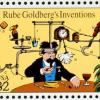
Homemade Rube Goldberg Machine
Source Institutions
In this fun and, at times, hilarious force and motion activity, learners will use household objects to build a crazy contraption and see how far they can get a tennis ball to move.

Detect Solar Storms
Source Institutions
In this activity, learners build their own magnetometer using an empty soda bottle, magnets, laser pointer, and household objects.
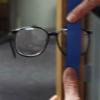
Make Your Own Telescope
Source Institutions
Discover how a refracting telescope works by making one from scratch using common items. This telescope won't have a tube so the learner can see how an image is formed inside the telescope.

Anti-Gravity Cups
Source Institutions
In this activity, learners will use simple materials to explore centripetal force and variables by swinging a cup of water without having the water spill out.
Making An Impact!
Source Institutions
In this activity (on page 14 of PDF), learners use a pan full of flour and some rocks to create a moonscape.
Tsunami: Waves of Destruction
Source Institutions
In this activity, learners use tsunami time travel maps to predict how long it will take a tsunami to reach the shore.

Conversation Piece
Source Institutions
Focus sound through a balloon! In this Exploratorium activity, you'll use dry ice to create a balloon that's a sound lens.

Crunch and Munch Lab
Source Institutions
In this activity, learners use three types of cheesy snacks--cheese balls, cheese puffs, and Cheetos--to learn about polymers.

Condiment Diver
Source Institutions
In this hands-on activity, learners make the world's simplest Cartesian diver, using only a plastic bottle, some water, and a condiment packet.
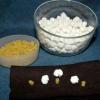
Nuclear Fusion
Source Institutions
This simple and engaging astronomy activity explains nuclear fusion and how radiation is generated by stars, using marshmallows as a model.
